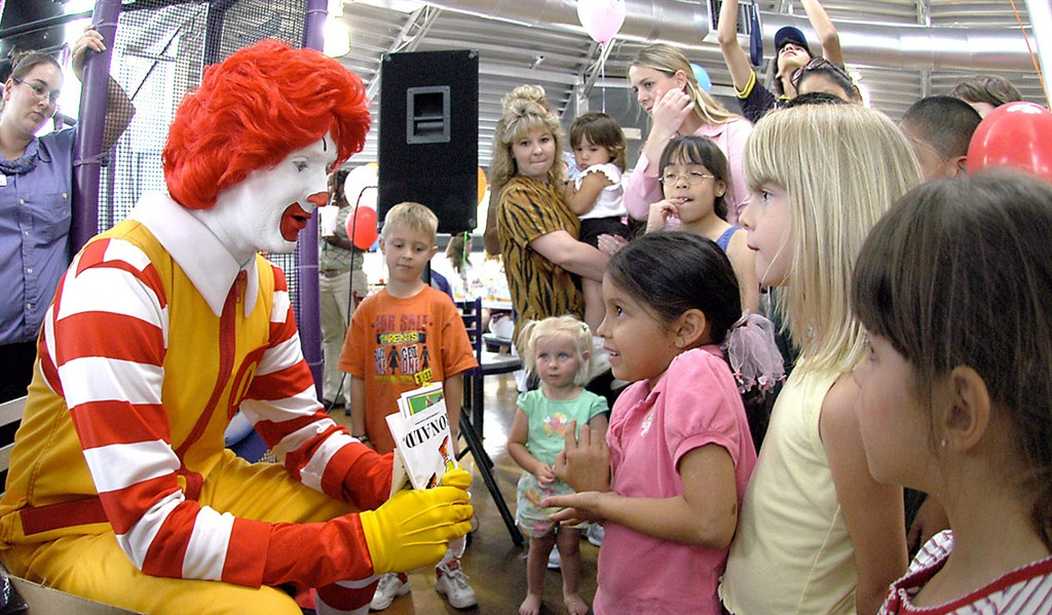Beware the trends in child rearing. Newton might revise his second law of thermodynamics: In every theory of what's best for the child, there's likely to be its equal and opposite theory.
The tiger mom who aims for rigid excellence begets the stressed-out dropout. Parents obsessed with "self-esteem," who put feelings above the rules of right and wrong, may raise a rebel who grows up to prize everything Mom and Dad oppose. Lazy teenagers might become aggressive moneymakers, and disciplined learners might reject high-pressure goals for adult sandboxes.
One size rarely fits all. (You could check out the pantyhose counter.)
Whether working parents or stay-at-home home-schoolers, no method alone determines what a child becomes. That doesn't stop the promises and taboos exchanged while building a tower of Legos. You can believe that, as you reap, so will you sow, but as George Gershwin's lyrics neatly put it, "it ain't necessarily so."
Now parents are instructed to worry about the "overprotected child." They're warned that the child you walk or carpool to school, supervise at karate and creative cooking, watch diligently when planting an organic garden to make sure he didn't fall into the compost will grow up to be more fearful and less creative than his daredevil, skateboarding, skydiving cousins. I exaggerate, but only a little.
Hanna Rosin, mother of three, visits for The Atlantic magazine the latest playground equipment, changed since the '90s, to demonstrate how we're raising a generation of 'fraidy cats. The toys have been stripped of sensation and risk. No more dodge ball or roughhousing at school recess, either.
Recommended
Ellen Sandseter, a Norwegian student of early-childhood and teenage behavior, says young people have "a sensory need to taste danger and excitement," to learn how acts have consequences. She suggests that kids, like chickens, need the free range before they come home to roost.
The argument is overstated, generalized and easily satirized, but it looks at how we've overreached in limiting child's play, guided as much by threats of lawsuits and sensational criminal cases as for a child's protection. The idea deserves a hearing.
You could start with a toddler in Chicago, who walked up a 12-foot curvy slide, supervised by his mother, and fell on his head onto the asphalt because there was a gap on the handrail of the stairs. It was a tragedy because the child suffered brain damage, and was exploited first by the lawyers and then by consumer "experts," who labeled playground behavior a form of Russian roulette.
Playground-safety guidelines quickly became stringent requirements. Tiny accidents the size of acorns were magnified into terrifying oaks.
Environmental engineers replaced grass, dirt and tree houses with rubber flooring and woodchips, and the pleasures of childish surprise vanished into technological dullness. "Rough and tumble" became "safe and secure."
A charming documentary movie based on the work of Roger Hart, a British researcher, about elementary school children in a New England town in 1972, shows them playing merrily without adult supervision, exploring the flora and fauna of a small nearby forest and creating secret houses and forts.
When these children grew up and became parents 32 years later, Hart revisited them and found they were afraid to let their children play alone even in their own backyards. A fence replaced the forest. They wouldn't allow him to interview their kids without a parent to chaperone.
Etan Patz, a 6-year-old in Brooklyn, N.Y., disappeared while walking alone to his school bus and became the famous poster child for National Missing Children's Day. Missing children appeared on milk cartons, and parents wouldn't let their kids out of their sight, even though crimes of abduction are rare, and continue to be as rare as ever. The pendulum swings.
Although fear of children being harmed may not result in more fearful children, as researchers claim, playgrounds are a lot less adventuresome. Some children get used to being watched instead of developing their own compasses for self-direction, and certain studies suggest that millennials suffer from a "play deficit" leading to depression and narcissism.
There's a class divide here. Many children of working-class parents crave the time and attention that middle-class children get from overprotective parents.
Even when both parents work, they add supervisory hours on weekends, overscheduling their children with "play dates" they can supervise. Children of less-prosperous parents are less aggressive and engage in more spontaneous play. No play dates for them.
There are learned studies to support both approaches, but maybe it's the right time to summon Aristotle and discover that middle way. We could build better playgrounds where children -- and the parents who watch them -- can enjoy a few thrills of risk and reasonable hazard. It should be fun.
























Join the conversation as a VIP Member